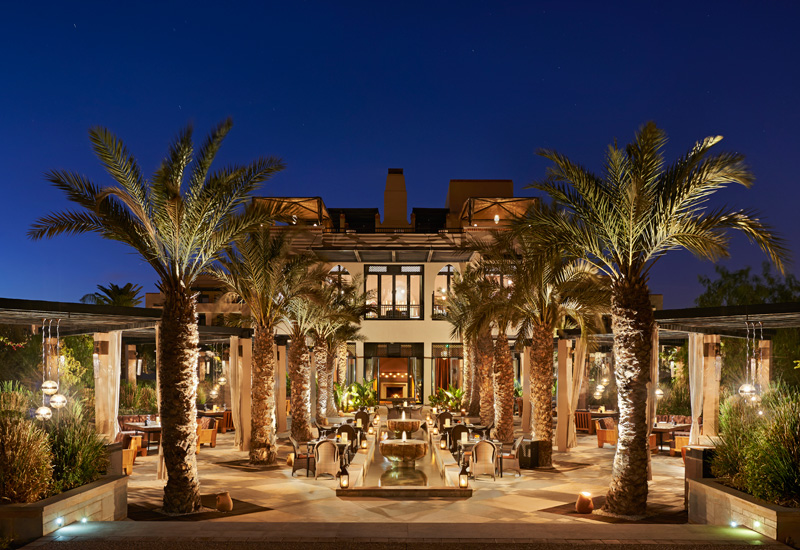MOROCCO
According to the annual W Hospitality Group Hotel Chain Development Pipeline Survey, Morocco has 33 hotels and 5,681 rooms in the development pipeline this year, and ranks fourth in the top 10 countries by number of rooms. Nigeria, Angola and Egypt are in the first three spots with 10,222, 7,560 and 6,660 rooms respectively.
Known for its culture and history, Morocco has perhaps had better luck with wooing tourists to its country. Four Seasons Resort Marrakech general manager Félix Murillo stresses that the country is one of “the most sought-after international travel destinations for visitors from around the world”.
Murillo adds: “In terms of trends, more and more guests to Morocco are looking for enriching experiences that extend beyond just a luxury stay in a five-star hotel. They seek experiences that integrate elements of wellness, cultural insight, contemporary art scene and much more.”
He also says his property has done well. “From a hotel perspective, we experienced growth across all segments compared to 2014. However, in terms of the local tourism and hospitality industry, Marrakech in general has seen a slight drop compared to last year mainly due to the international geopolitical situation.”
However, after opening her property in October 2015, Mandarin Oriental Marrakech director of sales and marketing Emilie Pignol reveals that in Morocco, even with a decrease in certain source markets, others have taken their place.
“We have noticed a decrease in the number of visitors from historical markets such as France, Italy and Spain. However, that has been complemented by an increase of Middle Eastern visitors to Marrakech, as well as Moroccan residents looking for luxury weekend breaks without leaving Morocco. Great Britain and the US markets remain relatively stable,” Pignol explains.
Murillo says the French market remains a major contributor for the country followed by the UK, USA, and Germany. “At the Four Seasons Resort Marrakech in particular, we have witnessed a growth in guest arrivals from Africa, the GCC region as well as the local market,” he adds.
Pignol also advises that the market tends to be unpredictable due to its last minute nature. She says the key is for hoteliers to diversify sources of business and to be open to exploring new opportunities in other markets, such as China.
“Hoteliers must also be aware of regional developments in related industries that can have an impact on hotels in Morocco. For example, Qatar Airways’ partnership with Air Maroc to launch a direct flight between Doha and Marrakech as of July will definitely help to develop business from the Middle East,” Pignol adds. There is huge potential, she says, in leveraging developments in the airline industry and capitalising on new markets to diversify sources.
“The top challenge for the market is maintaining consistency in terms of service for luxury hotels. At Mandarin Oriental we invest and focus heavily on on-going training to ensure we stay at the forefront in the industry,” she says.
Murillo concludes: “The North African hospitality market is transforming and changing at a very rapid pace owing to a number of socio-economic factors. The needs of both business and leisure travellers are evolving rapidly as well. However, with changes come challenges and the opportunity to innovate and set new benchmarks in the industry. Also, certain attributes of this shift remain unaffected such as the region’s time-honoured appeal among travellers.”

| Advertisement |









 Search our database of more than 2,700 industry companies
Search our database of more than 2,700 industry companies









